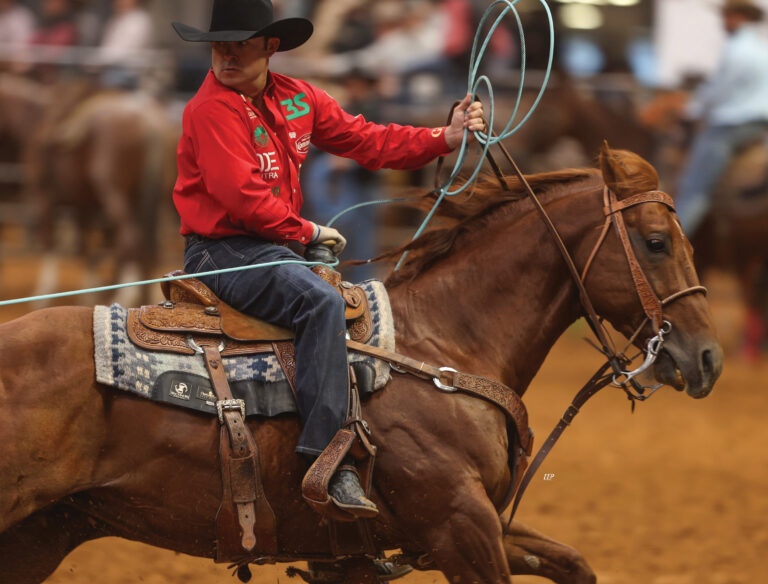“Every time a doctor has ever given him a timeline—whether it was to die, or to be laid up, or whatever—he always beat it.”
Chico Hines and Wesley Glover have been best buds for the past 35 years or so, and when Wesley called Chico to let him know the doctors had found a match for Wesley and he was heading to the hospital for his double-lung transplant, Chico got scared for a moment.
“My first thought was, this might be the last time I talk to my friend. I started getting a little bit upset and then I thought, he’s beat everything he’s ever been up against. I knew God was going to heal him and he’d be better than he’s ever been.”
That was the night of July 3, 2017. Wesley got his new lungs the next day, for Cowboy Christmas.
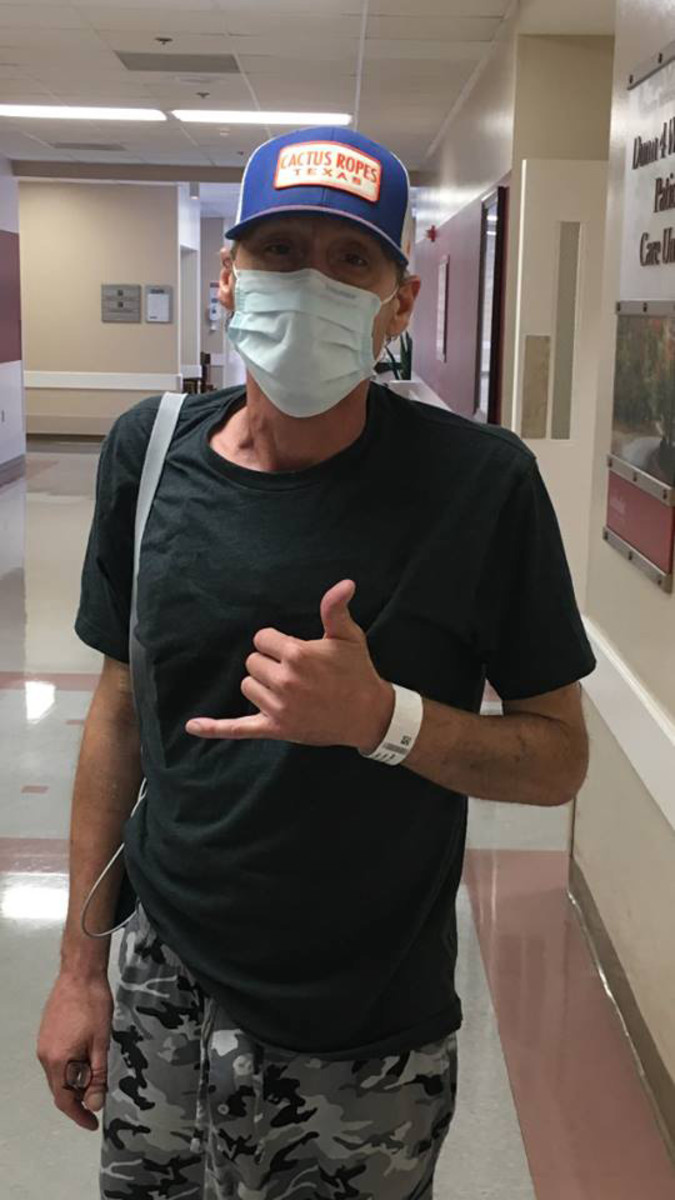
In a phone interview on September 1, Wesley is at home in Luling, Texas, for the first time since his surgery, two months and four days post-transplant. At this stage of recovery, his biggest threat is infection, and with Hurricane Harvey threatening to flood the apartment building he was staying in near the Houston Methodist J.C. Walter Jr. Transplant Center, where he received his transplant, his doctors gave the okay for an early homecoming. It will be November before Wesley will be free to go out to crowded restaurants or shake hands with people, but he’s feeling pretty good nonetheless.
“Before I had my transplant, my lung function was down to 17 percent. That was all I had left. And I’m now up to 65 percent, so things are a whole lot easier than they were, say, in April.”
When asked how long it had been since his lungs had last functioned at 65 percent, Wesley answers with “Never.” At least not since he’s been keeping track for the last 25 years, when 50 percent was the best he ever saw.
“What is incredible about Wesley,” Dr. Tara Barto, Wesley’s pulmonologist at Houston’s Baylor St. Luke’s Medical Center, says, “is that he had significant impairment, based off of medical records, for more than a decade, and it is astonishing that he has been able to do what he was doing for the last 10 years.”
In 2009, Wesley’s doctors informed him that, at age 40, 28 years beyond his initial life expectancy, he had end-stage Cystic Fibrosis (CF)—a thus-far incurable genetic disorder that most notably causes chronic and progressive respiratory issues. In short, a thick mucus invades the body’s organs. In addition to the lungs, the sinuses, intestines, and the reproductive tract are affected, as well as the pancreas, which helps the body digest food and creates insulin. Because the fluids are hard to mobilize, sinus and respiratory infections are prevalent, and pancreatic issues mean patients can eat and eat and never gain a pound, while also being at risk for diabetes.
When Wesley was diagnosed at 6 months old, his doctors weren’t necessarily wrong to predict a short lifespan. According to the National Institute of Health, CF may have presented itself as early as 3000 BC, but even by the 1960s, few medical advances for the disease had been made, and people with CF rarely became teenagers, didn’t go to college and didn’t have careers. They just didn’t live long enough to do so. But Wesley had other plans.
“When they tell you something,” Wesley explains, “in your mind, you just gotta believe something else.”
According to Wesley, it wasn’t the doctors that got him down as a kid. It was the day a schoolmate came to him and questioned why Wesley bothered going to school if he was just going to die.
“That’s why I started roping. Because I needed to have something to motivate me—to get me up, get me going. So, at 12 years old, that’s what I did.”
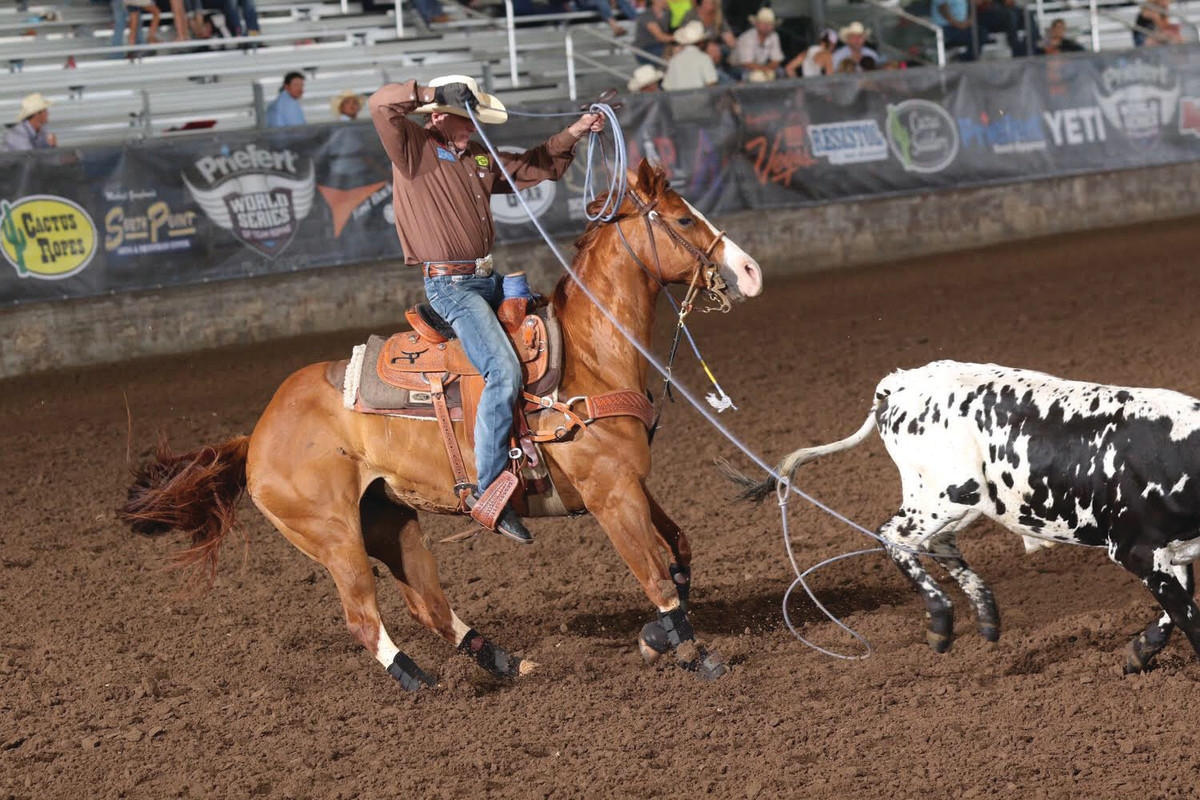
For anyone who has ever mounted up, swung a rope and chased a steer down, you are pretty familiar with the physical demands of roping. You may also understand how setting your mind to the task of training your horses and yourself and perfecting your throw could serve as mental motivation for an individual looking to overcome a set of challenges. But what is remarkable about Wesley becoming—and thriving as—a team roper is the very physical deficits caused by CF and the intensive daily care required to maintain it.
“It’s not just taking a pill or doing an inhaler,” Dr. Barto says of living with CF. “It’s time consuming and it’s unpleasant. It’s therapies that make you cough, that make you get rid of the mucus in your lungs. It’s taking pills every time you eat and monitoring your blood sugar. It’s doing sinus rinses. There are a lot of care burdens associated with CF.”
For lots of folks, the care alone is exhausting and demoralizing, and Chico, who rodeo’d with Wesley in high school and college, knows it’s a rare man who will willingly sign on for more.
“What he had to do everyday to be able to get on a horse, I don’t know that many people who are willing to put out that kind of effort. I’ve seen him on days where we’d be at the hotel and, forget the rodeo, I’m just hoping he gets to where he can breathe enough to get home.”
Incredibly, until very recently, only the people closest to Wesley even knew he was living with the disease. With the exception of reaching out to other CF patients and families as a mentor, Wesley had no interest in giving people a reason to feel sorry for him, and he certainly would never use his health to sway his number in the arena.
Due to Wesley’s iron will, the coughing fits, the need to eat and sleep whenever possible and the inability to get oxygen into hislungs were no match. As his disease persisted, so did he, devoting himself to his care and his heeling, which was eventually sponsored by brands like Cactus Ropes, Atascosa Dodge, and RopeSmart. But, by this past May, Wesley’s lung function was down to 17 percent.
“Walking across the kitchen was becoming more and more difficult,” Wesley remembers.
He was on oxygen, and his doctors were ready to put him on the transplant list, so that if a matching set of lungs became available, Wesley would be eligible to receive them. Which makes his May 27 win at the Mathews Land and Cattle #11 WSTR Qualifier in Sinton, Texas, extraordinary, in the most truthful sense of the word. Aboard Sheila, a horse he borrowed from Chico as his horse was crippled up, Wesley heeled his steers for an average time of 31.13 seconds after partner Cole Lamb turned them for a winning check in the amount of $10,280. He had known it was time to go on the list, but he also knew he wanted to get one more roping in, before his life would change forever.
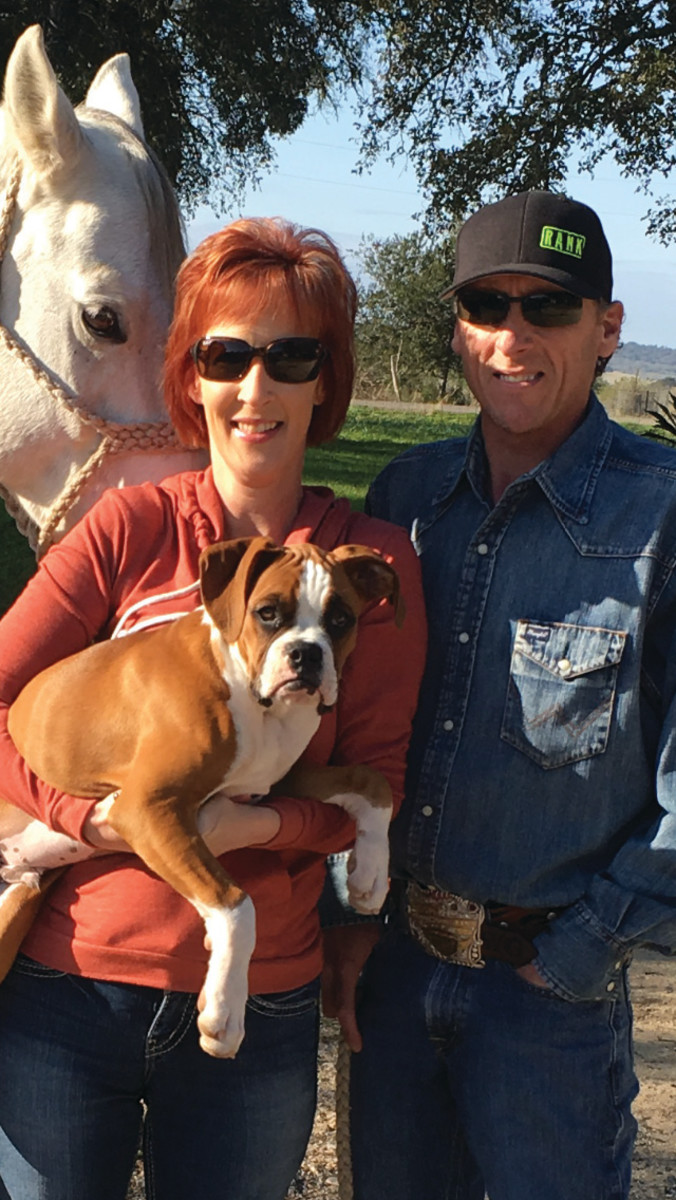
“Transplant is a hard decision,” says Brandy Hutson. “For many years, he said he would not do it.”
Brandy and Wesley have been together for 17 years, and she’s been by his side the whole time—a fact that, in addition to Wesley’s perseverance, contributes greatly to his success in living with CF, according to Dr. Barto, and will greatly contribute to the likelihood of his success post-transplant.
Just like CF patients are now living into adulthood (according to statistics, the average life expectancy for a person with Cystic Fibrosis in the United States is 42 years old, a trend that has been on an upward trajectory), transplant patients no longer have to consider an organ transplant a last-ditch Hail Mary. To be clear, organ transplant is still a significant surgery, but it’s also reasonable to think a patient who survives the surgery and the first year of recovery may also get to experience a greatly improved quality of life.
Together, Wesley and Brandy have overcome great odds right from the get-go. About six months after they started dating, Brandy was diagnosed with a rare form of cancer.
“I remember very vividly,” Brandy recalls, “I went to my oncologist to get my results and they weren’t good. The guy said, ‘this is life threatening. You are looking at a 20-percent survival rate.’”
When Brandy, who was 29 at the time, didn’t react as a “typical” person might, she offered her doctor some perspective.
“I said, ‘You don’t understand. I’ve been healthy for 29 years. Wesley has fought his whole life. Whatever comes, we’ll deal with it. We are a team.’”
Wesley agrees.
“I had the surgery,” he states, “but we’re both going through it.”
Much like team roping, luck only gets you so far. Then, it’s about the work that everyone is willing to do. When Wesley won that World Series qualifier in May, it was all he could do to pull himself together after a run.
“During the run itself, if your adrenaline is pumping, you don’t feel it. But as soon as your run’s over, it’s like getting your breath knocked out of you and having ice picks stuck in your back.”
It was a sensation that Wesley was experiencing no matter what kind of run he made—practice runs, jackpots, qualifiers, whatever—and eventually he focused on USTRC and World Series ropings, where the formats allowed Wesley to literally catch his breath between runs. Outside the arena, Brandy, who also maintains a career as an accountant for a sports medicine supply distribution company, was taking care of the rest.
“I’m the one in the background,” Brandy reveals. “I’m the one on the horse, warming him up, taking care of the horse. I’m not as social as Wesley, so that’s where you’ll usually see me. Helping him.”
It’s a challenging role for anyone tasked with it, but Brandy describes her commitment to Wesley as an easy choice.
“He’s my motivation. His positive attitude, and fighting as hard as he does for us everyday.”
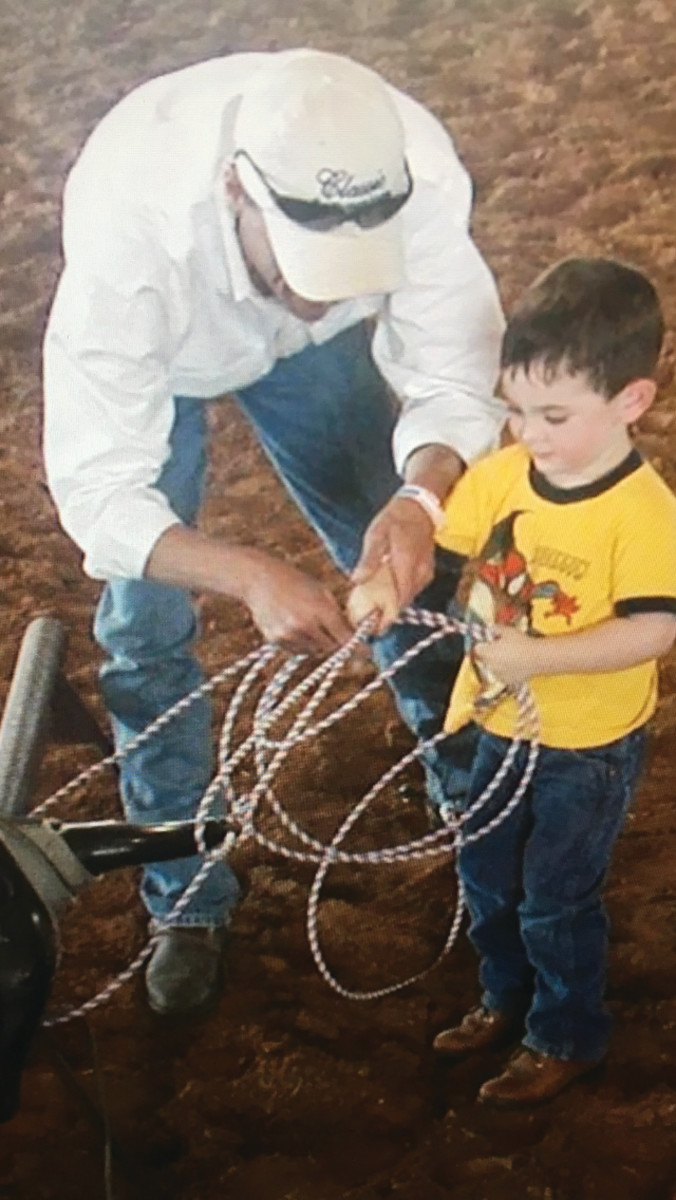
Indeed, Wesley’s attitude has garnered him quite a fan base. From Brandy to his doctors, to his buddies and a whole host of team roping fans, it takes little time for folks to realize they’re in the presence of a gracious and remarkable man. As a result, there are entire Texas and team roping communities mobilizing to raise money to help Wesley and Brandy cover the medical costs associated with the lung transplant. Shirts are being sold, raffles are being held, and as this issue goes to print, Chico and his brother, James, are preparing to host a benefit roping of epic proportions.
The G Money Warrior Team Roping was originally scheduled for the last weekend in August, but Hurricane Harvey led to it being rescheduled for Oct. 6 to 8 at the San Antonio Rose Palace. James and Chico have planned live and silent auctions, as well as a prize list including a horse trailer, buckles, and multiple saddles.
“We call Wesley The Warrior,” James says of the event’s title. “There’s a roping position for everyone from your pro ropers and guys who have been to the NFR, all the way down to beginners that have been roping for a few months. Our goal is to have about 2,000 teams total.”
Tee Woolman, the three-time World Champion header and ProRodeo Hall of Famer, is among those pros planning to rope for Wesley.
“I met Wesley about three years ago through Cody Watson when he came and roped with us at the house. He seemed like a really nice guy and I didn’t even know anything was wrong with him. But we keep in touch, and he’s a warrior and a fighter and that’s my kind of person, so whatever I can do for him, I’m going to do.”
It’s a fitting tribute for Wesley, who, as Brandy describes it, has had a full-time job of maintaining his life, but uses his passion for team roping to make life worth living.
“My life revolves around roping and quite honestly,” Wesley offers, “I believe I’m alive today because of it. That’s been my therapy and my physical therapy and everything else, so I’m just going to continue doing what I’ve always done.”
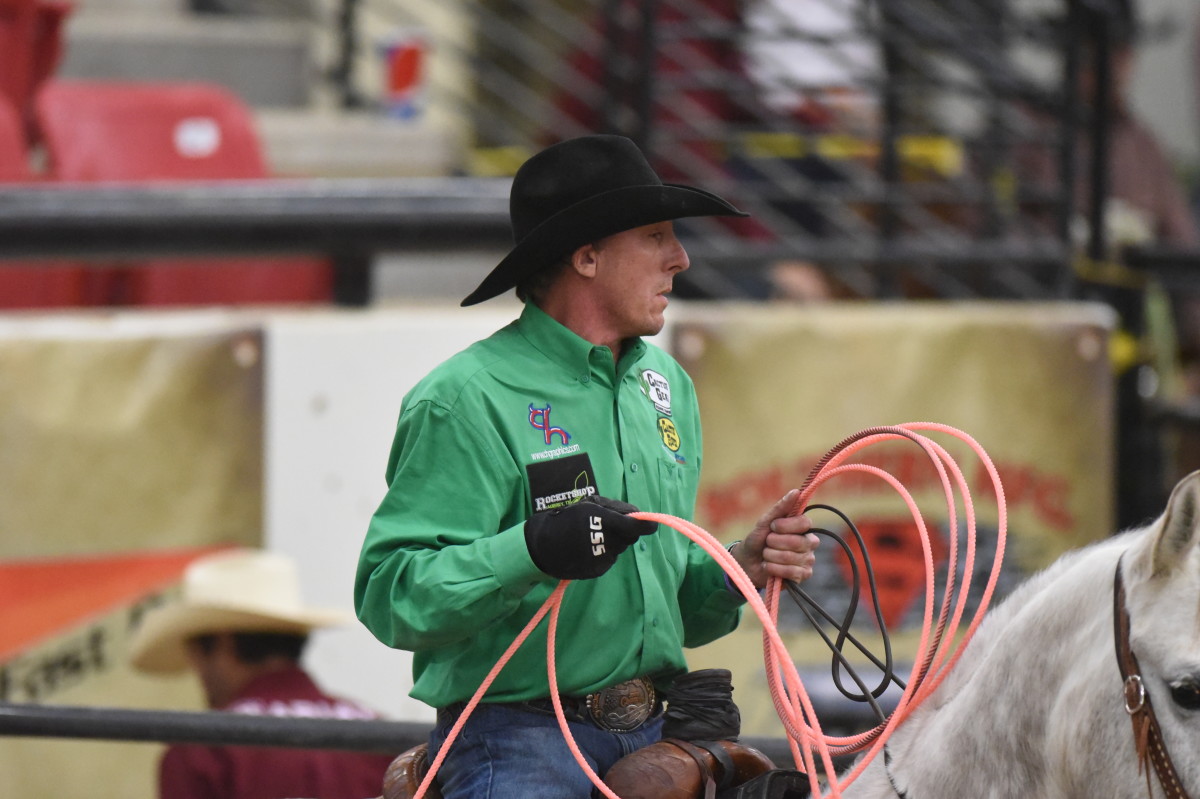
Today, Brandy is cancer-free and Wesley, in the midst of a crucial year of post-transplant recovery, is chomping at the bit to run some steers again—something he plans to accomplish by this December.
Of course, having lived a life that—on some levels—was measured in years left to live, Brandy and Wesley look forward with reined optimism. Because Wesley’s lungs now have a different genetic makeup, they are no longer susceptible to CF, which means Wesley may achieve as much as 90-percent lung function in the near future. But because the body can always reject the new lungs, Wesley will take immunosuppression pills for the rest of his life that, in exchange for allowing his body to work with his new lungs, will make it easier for him to catch an infection. The pancreatic and sinus issues remain, as well.
“After transplant,” Dr. Barto explains, “you have a different set of challenges and it’s like a major life change—like getting married, or having kids, or anything else. But I think the fact that he can breathe and not wear oxygen is pretty miraculous.”
Brandy, who’s looking forward to spending more years with Wesley, also focuses on the victories and shares an anecdote about Wesley’s recent check-up, when he had to park far away from the hospital entrance.
“He said, ‘I can’t tell you how good it felt to not be out of breath carrying all my stuff. I was even walking fast enough to pass somebody.’”
For Wesley, the next steps are clear. Get better, then get back to Las Vegas for the 2018 World Series of Team Roping Finale.








